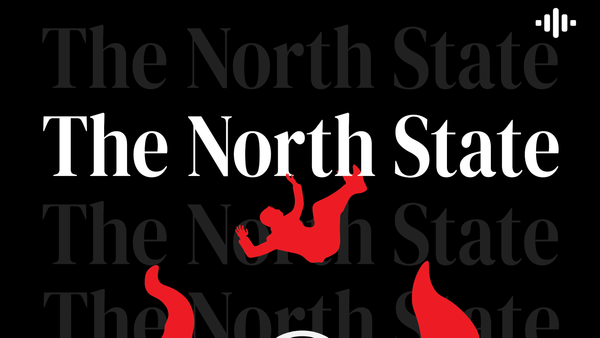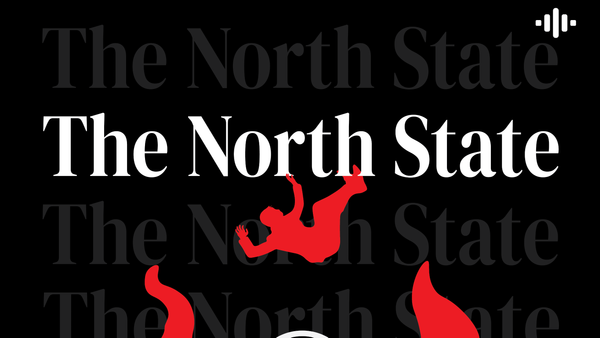What's Wrong with Jacobin?
Abdicating responsibility in spreading unfounded rumours of Chomsky's death should spell disaster for any outlet

Last week, the world mourned the loss of Noam Chomsky. Chomsky, a legendary figure in the US left, had recently suffered a stroke and news of his death spread quickly on the internet (mainly Twitter).
But Chomsky was not dead. Journalists reaching out to Chomsky's wife Valéria to ask about his condition learned that he had not died, and the original tweet was incorrect. This was confirmed by ABC News journalist Chris Looft, Hillel Italie at Associated Press and Jacobin Brazil editor Cauê Seigner Ameni (remember this). The "news" of Chomsky's death originated (or at least the first time many saw it) from the Twitter account of Dr. Gina van Raphael, who deleted the post after learning he was very much alive. Dr. van Raphael said in the post explaining the deletion that she originally heard the claim from "academic sources."
We all make mistakes, and I'm no exception. After initially reposting a tweet scolding the account for posting this news without consulting the family or waiting for a news confirmation, I saw that Jacobin, a popular nominally leftist news outlet, released an obituary titled "We Remember Noam Chomsky, the Intellectual and Moral Giant." Jacobin, as a prominent left publication in the US, has had an established relationship with Chomsky, interviewing him on at least two separate occasions. I took it on good faith that an obituary published by Jacobin would mean they confirmed his passing. This was wrong.
A Twitter account posting something that later turned out to be false isn't worthy of analysis. But the absolutely bizarre backpedaling that Jacobin did afterwards deserves scrutiny. Nearly an hour after the first Way Back Machine archive is available, the Jacobin page was updated to read "Let's Celebrate Noam Chomsky, the Intellectual and Moral Giant" (emphasis mine). The body of the piece still used to past tense to describe him, and the url still contained "obituary."
To be fair, The New Statesman published their obituary as well, seemingly without confirming. While it's unclear which one came first, Jacobin will be the focus of this article, as The New Statesman completely took down their obituary around the same time Jacobin updated theirs.
A Cumulation of Behaviour
Much of what has happened concerning rumours of Chomsky's death on June 18 is difficult to trace. Between the original tweet being deleted, and pieces being published then edited or taken down, but we do have archived versions available on the internet. An Independent piece from June 19 does not mention that Jacobin eventually took down the article on the url containing "obituary" but a CBC News article from the same day at 10:38am points out that it had been removed. Meanwhile, the tweet Jacobin posted of the now-dead link is still up, having been edited to erase the past tense and with community notes attached to it.
Confusing? There's one more part. The article is still live on Jacobin's site with "obituary" now absent from the url and the tense updated in the piece. The original url now leads to a 404 page.
Every publication has missteps, and none should be discounted because of an occasional poor choice. But to say that Jacobin has been missing the mark lately is an understatement.
On certain topics, their ideological bent disregarding facts is blatant. Every article Jacobin publishes on the subject of degrowth, for example, appears incapable of actually understanding the concept. To sum up the flaws in degrowth analysis published by Jacobin, here's a quote from French economist Timothée Parrique in a piece debunking "4 problems for the degrowth movement" by Daniel Driscoll:
It is strange that Jacobin allowed something that flimsy to be published. The piece reads like a bingo of misunderstandings. Daniel Driscoll associates degrowth to a dictature, a pathway to austerity and poverty, a form of lifestyle environmentalism, and even an increase in carbon emissions. (Bonus points for coining a new derogatory term I’ve never heard before: “economic suppression.”) Kai Heron is right when he calls it “a good example of Brandolini’s Law”: a 3-page, poorly written text that demands much more effort to debunk than to write.
A stark example of Jacobin's poor editorial decisions that echoes their behaviour around Chomsky's supposed death is an article on the FX TV series Shōgun. Joe Mayall wrote that the series, set in early 17th century Japan, displays a relationship between colonizer and the colonized. In this scenario, Mayall expects us to believe the Japanese were colonized by Portugal. Anyone with a cursory knowledge of Japan's history knows this claim is nonsense. The show itself actually references Japan's genocidal invasion of Korea in the 1590s in a historically notable attempt to militarily subjugate its population. Despite this, Jacobin saw little issue using a TV show in the cultural milieu to depict Japan as a colonized nation.
The article was (rightfully) ridiculed online immediately after publication. It reached the point where the headline was edited afterwards and the piece locked behind a paywall for subscribers only. Mayall then continued to insist that his analysis was correct, going so far as to assert that he knew more than a professional historian of East Asia that specialized in early modern Japanese history in his graduate studies.
Lest there be an assumption that Jacobin's misunderstanding of colonialism was a one-off, an article by their columnist Ben Burgis suggests that recognizing the settler-colonialism of Israel means "embracing the logic of reactionaries." To obscure the driving force of Israel's genocide is to completely refuse to materially analyze the Israeli military's mass killings of Palestinians and how it's intrinsically tied to their expansion of settlements.
Whether displaying an inability to grasp colonialism or a failure to verify possibly breaking news, Jacobin has shown it's not to be trusted.
Valid Criticism or Sour Grapes?
There have been plenty of other criticisms of Jacobin that play degrees of distrust in recent months. They continue to insist that "the left" in the US needs to work inside the Democrat Party, complete misunderstanding how capitalism's hostilities to socialism will be faced by the right. Fascism doesn't threaten capitalism, while socialism and communism do. This is basic understanding of 20th century history being omitted.
To be fair, they have published good pieces by good journalists, and probably will continue to do so in the future. Valuable news published by Jacobin is what makes this latest debacle all the more frustrating.
So is my intention to simply air grievances in hopes that readers will join my spiteful view?
If my goal were that simple, this article would have been written far earlier. I have made no secret of my disdain for the publication, and will continue to make it known in the future. But in the grand scheme of things, Jacobin's behaviour is far less notable than the regular distortions of CBC News, The New York Times, National Post etc. Those take precedence for The Catch.
Yet their role in perpetuating the myth of Chomsky's death is no misfire. It was a failure to do due diligence in reporting on not only one of the biggest names in the US left, but someone that the publication have interviewed themselves. It should be reiterated that the death of Chomsky was debunked by Jacobin's Brazil editor. So why couldn't the US outlet do the same before publishing their obituary? Why did the article only face minor edits, and still contain "obituary" in its headline so long after it was debunked? Why is the article still up in a different form? It's unclear what explanation could be made for this editorial disaster. But what excuse would be sufficiently exonerative?
Publications that claim to be progressive should be held to higher standards regardless of their particular ideology. Poor analysis is one thing, and certainly warrants criticism. But Jacobin played a major a role in spreading a hoax and then refused to take responsibility. At time of writing, no acknowledgement of their actions has been made.
This whole ordeal is completely and utterly unacceptable for any journalist outlet, but especially one claiming to speak for the people.





